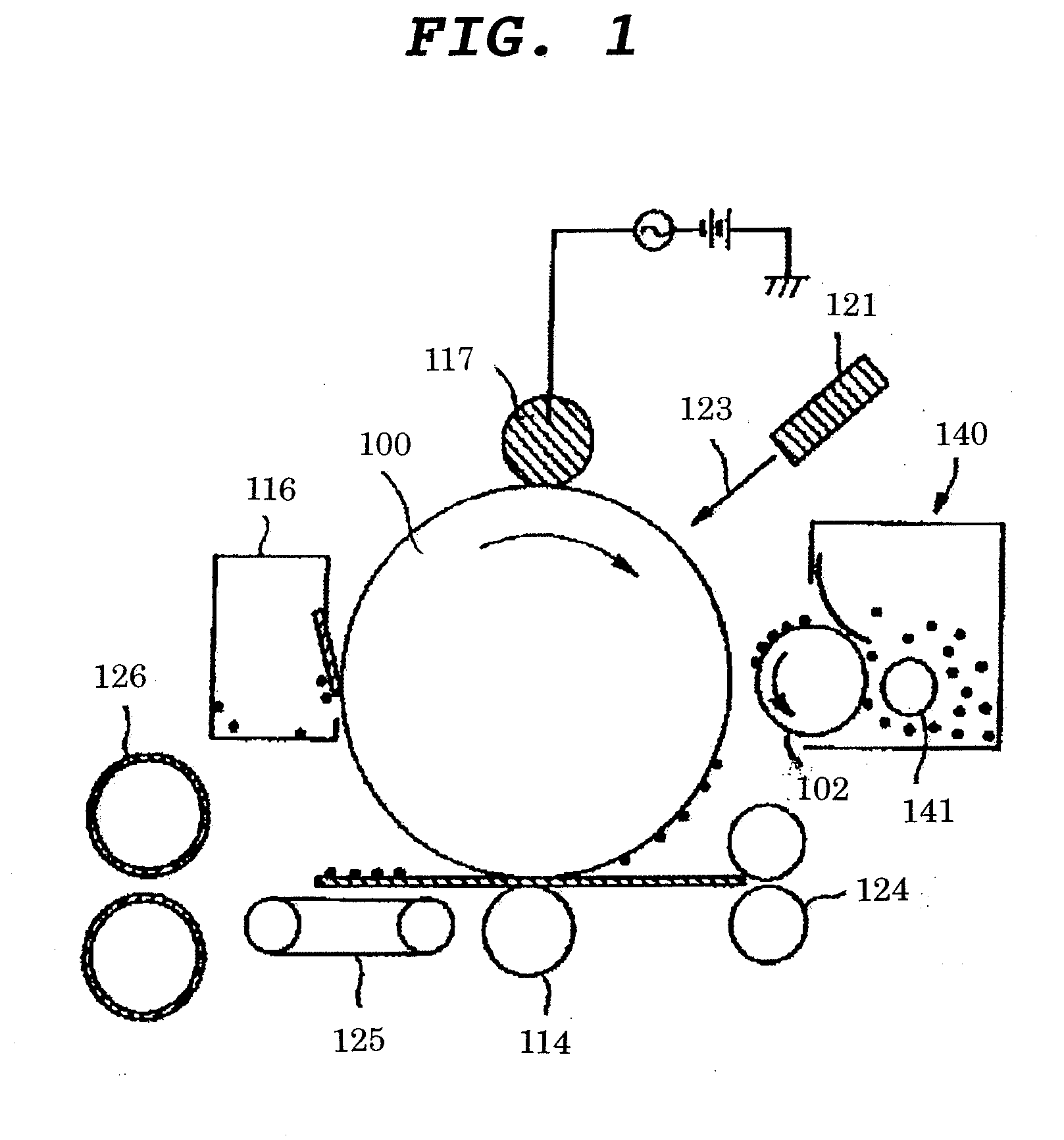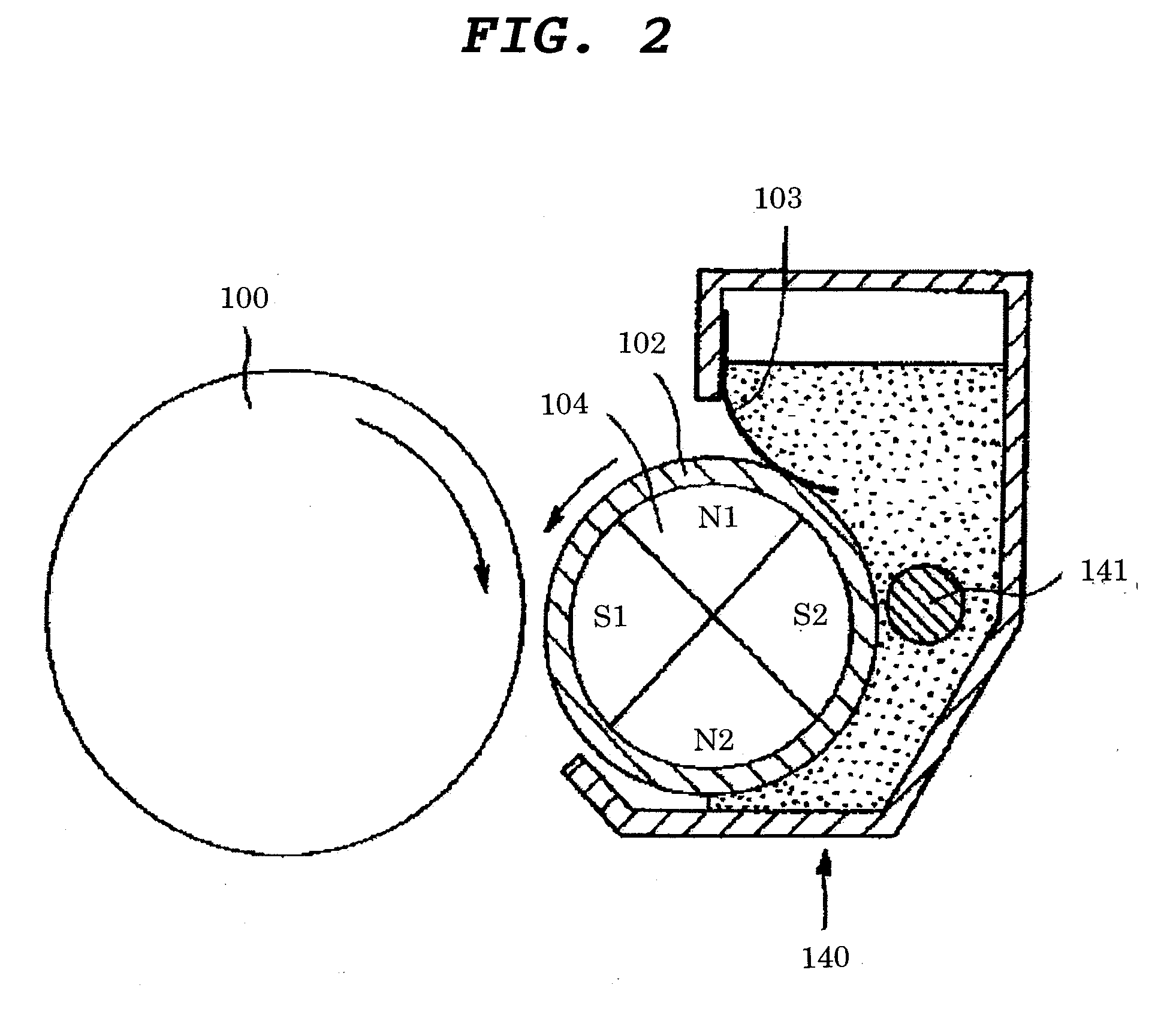Magnetic toner
a toner and magnetic technology, applied in the field of magnetic toners, can solve the problems of inability to operate in the form of images, inability to print, and inability to print, etc., and achieve the effect of high-level image quality, superior low-temperature fixing performance and pressure roller anti-staining properties
- Summary
- Abstract
- Description
- Claims
- Application Information
AI Technical Summary
Benefits of technology
Problems solved by technology
Method used
Image
Examples
production example 6
[0212]Magnetic Toner 6 was produced in the same way as in Magnetic Toner Production Example 5 except that Surface-treated Magnetic Material 3 was used in place of Surface-treated Magnetic Material 1. Physical properties of Magnetic Toner 6 are shown in Table 2.
[0213]Magnetic Toner
production example 7
[0214]Magnetic Toner 7 was produced in the same way as in Magnetic Toner Production Example 5 except that Surface-treated Magnetic Material 6 was used in place of Surface-treated Magnetic Material 1. Physical properties of Magnetic Toner 7 are shown in Table 2.
[0215]Magnetic Toner
production example 8
[0216]Magnetic Toner 8 was produced in the same way as in Magnetic Toner Production Example 1 except that, as the cross-linking agent, 1,6-hexanediol acrylate was used in place of the PEG #400 dimethacrylate. Physical properties of Magnetic Toner 8 are shown in Table 2.
[0217]Magnetic Toner
PUM
| Property | Measurement | Unit |
|---|---|---|
| Ea | aaaaa | aaaaa |
| activation energy | aaaaa | aaaaa |
| magnetic | aaaaa | aaaaa |
Abstract
Description
Claims
Application Information
 Login to View More
Login to View More - R&D
- Intellectual Property
- Life Sciences
- Materials
- Tech Scout
- Unparalleled Data Quality
- Higher Quality Content
- 60% Fewer Hallucinations
Browse by: Latest US Patents, China's latest patents, Technical Efficacy Thesaurus, Application Domain, Technology Topic, Popular Technical Reports.
© 2025 PatSnap. All rights reserved.Legal|Privacy policy|Modern Slavery Act Transparency Statement|Sitemap|About US| Contact US: help@patsnap.com



